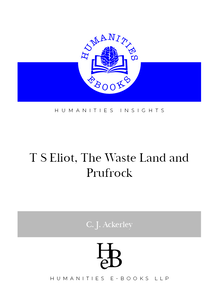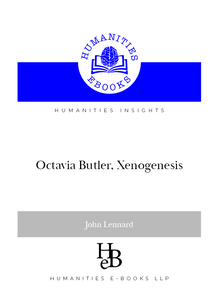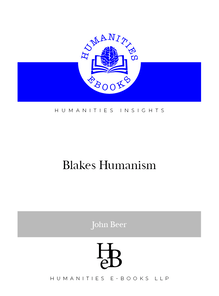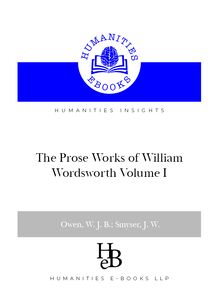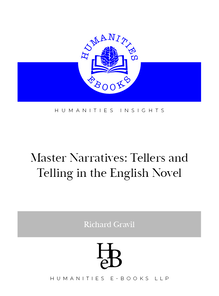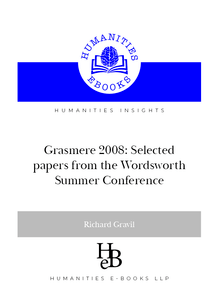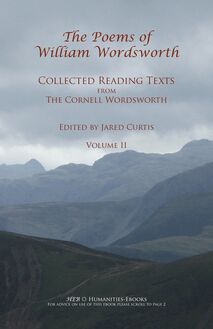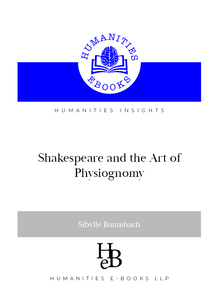-
 Univers
Univers
-
 Ebooks
Ebooks
-
 Livres audio
Livres audio
-
 Presse
Presse
-
 Podcasts
Podcasts
-
 BD
BD
-
 Documents
Documents
-
- Cours
- Révisions
- Ressources pédagogiques
- Sciences de l’éducation
- Manuels scolaires
- Langues
- Travaux de classe
- Annales de BEP
- Etudes supérieures
- Maternelle et primaire
- Fiches de lecture
- Orientation scolaire
- Méthodologie
- Corrigés de devoir
- Annales d’examens et concours
- Annales du bac
- Annales du brevet
- Rapports de stage
La lecture à portée de main
191 pages
English
Découvre YouScribe en t'inscrivant gratuitement
Je m'inscrisDécouvre YouScribe en t'inscrivant gratuitement
Je m'inscris
Obtenez un accès à la bibliothèque pour le consulter en ligne
En savoir plus
En savoir plus
191 pages
English
Obtenez un accès à la bibliothèque pour le consulter en ligne
En savoir plus
En savoir plus

Description
A verse-novel that won the Jamaican National Literary Award in 2001, View from Mount Diablo explores the transformation of Jamaica from a sleepy colonial society to a post-colonial nation.
Sujets
Informations
| Publié par | Humanities eBooks |
| Date de parution | 11 janvier 2021 |
| Nombre de lectures | 0 |
| EAN13 | 9781847600936 |
| Langue | English |
| Poids de l'ouvrage | 2 Mo |
Informations légales : prix de location à la page 0,0448€. Cette information est donnée uniquement à titre indicatif conformément à la législation en vigueur.
Extrait
HUMàNItIes-EBOOKs GeNre FICtION SIghtlINes
Tamora Pierce The Immortals
RaLpH THompSon Wild Magic Wolf-Speaker View from The Emperor Mage TheRealms of the Gods Mount Diablo An Annotated Edition EdIted By JOhN LeNNàrd By JOhN LeNNàrd HEB☼HUMàNItIes-EBOOKs, LLp
RàlPh ThOMPsON
VIeW frOM mOUNt DIàBlO
aN àNNOtàted edItION
By
JOhN LeNNàrd
HEB☼HUMàNItIes-EBOOKs, 2009
pubLicaTionDaTa
View from Mount Diablo© Ralph Thompson 2003, 2009 Introduction and annotations © John Lennard 2009 ‘Launch Speech’ © Wayne Brown 2003, 2009. Published by kind permission of Wayne Brown. ‘The Inner Part’ © Louis Simpson 1963. Reprinted by kind permission of Louis Simpson. Cover image: ‘Mount Diablo’ © John Laidlaw
The editor has asserted his right to be identiîed as the author of this Work in accordance with the Copyright, Designs and Patents Act 1988. Copyright in images and in quotations remains with the sources given.
A material edition of this book ISBN 9781845231446 is published simultaneously by Peepal Tree Press in Leeds, and is available both from their website and from all good bookshops. http://www.peepaltreepress.comThis electronic edition published in 2009 by Humanities-Ebooks LLP. Tirril Hall, Tirril, Penrith CA10 2JE
HowTouSETHiSbook
To use the navigation tools, the search facility, and other features of the toolbar, this Ebook should be read in default view. To navigate through the contents use the hyperlinked ‘Book-marks’ at the left of the screen. To search, click on the binocular symbol in the toolbar. For ease of reading, use <CTRL+L> to enlarge the page to full screen. Use <Esc> to return to the full menu. Hyperlinks appear in Blue Underlined Text. LicEncEanDpERmiSSionS
Purchasing this book licenses you to read this work on-screen and to print one copy for your own use. Copy and paste functions are disabled. No part of this publication may be otherwise reproduced or transmitted or distributed without the prior written permission of both the copy-right owner and the publisher. Making or distributing copies of this book constitutes copyright infringement and would be liable to prosecution. Thank you for respecting the rights of the author.
iSbn 978-1-84760-093-6
CONTENTS
Acknowledgements Map of JamaicaIntroduction“a cloud shaped like his island home” Form (1) The verse-novel (and crime) Pushkin and the nineteenth century Seth and the late twentieth century The Commonwealth and Caribbean Clusters Versification and metrics Form (2) The Bildungsroman Background (1) Jamaica in World War 2 Background (2) “Blood / cheaper than drugs.” A brief history of current drugs legislation The new triangular trade Early Reception Wayne Brown, Launch speech Fr. Gerard Leo McLaughlin SJ,Sunday ObserverView from Mount Diablo Prologue Chapter One Chapter Two Chapter Three Chapter Four Chapter Five Chapter Six Chapter Seven Chapter Eight Chapter Nine Chapter Ten Chapter Eleven Chapter Twelve
6
7
8 10 10 12 15 22 25 29 31 33 34 36 37 43
45 48 50 53 58 62 65 68 74 78 81 86 91 96
Annotations Prologue Chapter One Chapter Two Chapter Three Chapter Four Chapter Five Chapter Six Chapter Seven Chapter Eight Chapter Nine Chapter Ten Chapter Eleven Chapter Twelve Bibliography Poetry Essays Journalism Reviews of Ralph Thompson’s Work Verse-Novels and Poetry Cited Bildungsromans and Memoirs Cited
100 101 104 108 113 117 122 125 137 143 146 154 160 168
175 175 177 178
181
182 186
5
ACKNOWLEDGEMENTS
6
My greatest debt, of course, is to Ralph Thompson, not only forView from Mount Diabloitself and the many rewards it has afforded me in reading and annotating, but for his patience in answering queries, help in compiling the bibliography of his work, careful reading of the typescript introduction and annotations, and supply of some additional glosses as well as various corrections. Frequent hospitality in a fascinating house with its own stunning views over troubled Kingston, and the gracious kindness (and cooking!) of his wife Doreen, made an always interesting project a great and memorable pleasure. Professor Emeritus Edward Baugh, of the University of the West Indies–Mona, a very fine poet as well as the doyen of Caribbean critics, was also kind enough to read the typescript, and greatly improved the introduction; his generosity with his time and skill, memory and understanding, were remarkable, and deeply appreciated by an annotator always conscious of his own less than Jamaican credentials. At both early and late stages in the project Professor Kwame Dawes, another fine poet who read a draft MS for Peepal Tree, was with Jeremy Poynting rightly firm in directing me to a range of Caribbean echoes, resonances, and contexts I had missed or slighted, and the whole is far stronger for their care; Jeremy also kindly and cleverly supplied very useful wording in a score of notes. Some fruitful disagreements having remained disagreements, I should add that some of the views expressed, like all mistakes, are mine alone. Mr Aeon Forbes, of the Library Department ofThe Gleaner, was helpful in tracking down items for the bibliography; and Ben Ramm, editor ofThe Liberal, was kind enough to commission a piece on verse-novels (for the Spring 2009 issue) that helped me to focus what I wanted to argue. Louis Simpson was kind enough to grant permission to reprint the text of his poem ‘The Inner Part’, and Wayne Brown equally kindly granted permission to include the text of his ‘Launch speech’ for the first edition of the poem in 2003. Finally, I would like to thank those students at UWI–Mona to whom I have taughtView from Mount Diablo, and whose responses, both enlightening and puzzled, persuaded me that an annotated edition could benefit readers everywhere. JCL
Introduction
“a cloud shaped like his island home”
8
Like its author,View from Mount Diablo is powerfully hybrid—a verse-novel that won the Jamaican National Literary Award in manuscript in 2001, and was published in the UK by Peepal Tree Press in 2003. Ralph Thompson (b.1928) is a white Jamaican, of crypto-Jewish and Irish stock, who received a Jesuit education. Through his absent father’s US nationality he was eligible for military service, and after graduating in law from Fordham University in 1950 spent two years as a USAF officer in Japan, but he is married to a Jamaican and has lived in Kingston save for a brief period in the 1970s when political violence forced the family overseas. Thompson’s career was largely in business, with Seprod Ltd (a large firm supplying household commodities and consumer products, for whom he was a long-serving, highly successful CEO), but included educational activism with extensive journalism, exhibitions of paintings, and latterly two well-received poetry 1 collections—The Denting of a Waveand (1992) Moving On (1997) —before 0 expanding withView from Mount Diabloembrace the verse-novel. Itself to intrinsically hybrid, that form is stretched by the generic models for Thompson’s plot, the Bildungsroman and the crime novel, and additionally distorted by wide-angle narration bending an account of Jamaican social and political history from the 1930s–2000s into one truncated and foreshortened fictional life. The protagonist, reporter and family-man Adam Cole, remembers the war-years of the 1940s, and cannot be much younger than Thompson himself—born sometime in 1930–5. He married after graduating from university,c.1955, and by chapter 6 has a daughter of 15, making it the early 1970s. The violent, tragic events that dominate chapters 6–12 thus seem at first to invite mapping onto the ‘Manley Years’ (1972– 80), and the final killings might be thought specifically to summon the later 1970s, a very bloody time in Jamaica—but the ‘Manley Years’, however neat a tag, marked an escalation as much as an inception, andall later events in the verse-novel subsume continuing, generically similar events of the 1980s–2000s. The particular role of the cocaine trade in the dénouement also points to a more recent date than the 1970s, and it is clear the Jamaican history Thompson presents, if profoundly veri-similar, is as much an archetypal assemblage of chronic political and psychological
1 Both are published by Peepal Tree Press.
9
symptoms as a chronological account of events. Historicised narrative with explicitly political chapters create this verse-novel as (beyond its other genres) a state-of-the-nation report, shaping it “like his island home” (48). What that report fundamentally posits, theologically, politically, and culturally, is fratricide. Properly speaking, Adam’s killer Nathan is neither his blood- nor milk-brother, but he is his greatest childhood friend, a sometime heart-brother in adventure—though not education, for while Adam goes to Oxford, Nathan goes nowhere, and must grub privilege through ruthless entrepreneurial success in the drug trade/s. Adam’s parents welcome Nathan as playmate but do little for him financially, allowing him to foster ambitions and breathe atmospheres he would not otherwise have known and will never have the means to satisfy. So doing, they inadvertently make their thin care seem to Nathan like callousness, and so pave the road that leads to a reprise of Cain and Abel. Adam’s terminal death is profoundly bleak, in the personal and theological senses of love failed and perverted, but also politically, for beyond the prophylactic slaughter of a playmate it represents a defeat of investigative journalism by organised crime. Ultimately, it also speaks to the bloody brotherhood of the two major Jamaican political parties, the Jamaica Labour Party (JLP) and People’s National Party (PNP), schismatically dividing during World War 2 and becoming with independence and its aftermaths like psychotic Siamese twins, fused through the skull but forever trying to kick one another to death. Given Thompson’s subtle mixing of specific and typical events, precision and suggestion, readers unfamiliar with Jamaica’s political development and social difficulties since the 1930s might best begin by consulting a good, short article 1 outlining them. Particular references are annotated and some general background 1 given later in this introduction, but greater knowledge than I have space to provide of the late colonial period, West Indies Federation (1958–62), subsequent Jamaican independence, ‘Manley Years’ in the 1970s, and social and criminal trends through-out the later century, will be of real value to readers. Subsequent sections of this introduction deal with the verse-novel and Bildungsroman as formal models, including Thompson’s relation to other Caribbean examples; with the World War 2 background that dominates the early part ofView from Mount Diablothe and cocaine trade that dominates its later part; and with its launch and early reception in Jamaica.
1 See e.g.http://en.wikipedia.org/wiki/Jamaicaor http://www.discoverjamaica.com/gleaner/discover/geography/.
Form (1)
The verse-novel (and crime)
10
The term ‘verse-novel’ has (like ‘prose poem’) an intrinsic paradoxicality often taken as a sign of levity—but recorded narrative begins in verse, with the anony-mous pre-classical epicGilgamesh (writtenc.1200BCE, and perhaps a millennium older). The highly wrought forms of the great classical epics, Homer’sIliad and th Odyssey(probably 9 centuryBCE) and Virgil’sAeneid(written 29–19BCE), attest to the advantages of verse in casting narrative, and in Virgil’s case to the explicitly political purposes verse-narrative may serve. Both lessons are reinforced by mediaeval and Renaissance examples of long verse-narrative—including the th anonymous FrenchChanson de Roland (12 century), Dante’sLa Commedia(completedc.1320), Boiardo’sOrlando InnamoratoAriosto’s (1487) Orlando Furioso (1532), and Tasso’sGerusalemme Liberatalater writers (1581)—but followed Virgil in fusing epic with romance, and were in turn followed by Spenser inThe Faerie Queeneand Milton in (1596) Paradise Lost(1667). Spenser in particular was by Book VI ofThe Faerie Queeneanticipating significant also aspects of the kind of prose narrative now called ‘novels’, particularly in naming and handling character. The post-/Renaissance emergence of long prose fiction, culminating in the novel, was matched in poetry. The Restoration and eighteenth century saw many extended poems, from Butler’sHudibras(1663–78), Pope’sThe Rape of the Lock(1714), and the great 1716 translation of Ovid’sMetamorphosesto which Dryden contributed, to James Thompson’sThe Seasons(1726–30), Macpherson’sFingal(1762) &Temora1 (1763), and Cowper’sThe Task (1785). While not in any simple way ‘novels’ all 2 clearly contested the growing supremacy of prose narrative; in a similar fashion the seventeenth- and eighteenth-century emergence of prose autobiography had by 1800 provoked the emergence (with the first version of Wordsworth’sThe Prelude) of the modern verse-autobiography.
Pushkin and the Nineteenth Century
Long verse narratives embracing epic and romance forms continued throughout the nineteenth century, but late Romanticism saw the emergence of what has come to be 1 These were supposed ‘tales of Ossian’, and contain free translations of Gaelic fragments, but were revealed by the Mackenzie Committee in 1805 to be substantially Macpherson’s creation.
-
 Univers
Univers
-
 Ebooks
Ebooks
-
 Livres audio
Livres audio
-
 Presse
Presse
-
 Podcasts
Podcasts
-
 BD
BD
-
 Documents
Documents
-
Jeunesse
-
Littérature
-
Ressources professionnelles
-
Santé et bien-être
-
Savoirs
-
Education
-
Loisirs et hobbies
-
Art, musique et cinéma
-
Actualité et débat de société
-
Jeunesse
-
Littérature
-
Ressources professionnelles
-
Santé et bien-être
-
Savoirs
-
Education
-
Loisirs et hobbies
-
Art, musique et cinéma
-
Actualité et débat de société
-
Actualités
-
Lifestyle
-
Presse jeunesse
-
Presse professionnelle
-
Pratique
-
Presse sportive
-
Presse internationale
-
Culture & Médias
-
Action et Aventures
-
Science-fiction et Fantasy
-
Société
-
Jeunesse
-
Littérature
-
Ressources professionnelles
-
Santé et bien-être
-
Savoirs
-
Education
-
Loisirs et hobbies
-
Art, musique et cinéma
-
Actualité et débat de société
- Cours
- Révisions
- Ressources pédagogiques
- Sciences de l’éducation
- Manuels scolaires
- Langues
- Travaux de classe
- Annales de BEP
- Etudes supérieures
- Maternelle et primaire
- Fiches de lecture
- Orientation scolaire
- Méthodologie
- Corrigés de devoir
- Annales d’examens et concours
- Annales du bac
- Annales du brevet
- Rapports de stage
Signaler un problème
YouScribe
Le catalogue
Le service
© 2010-2024 YouScribe
